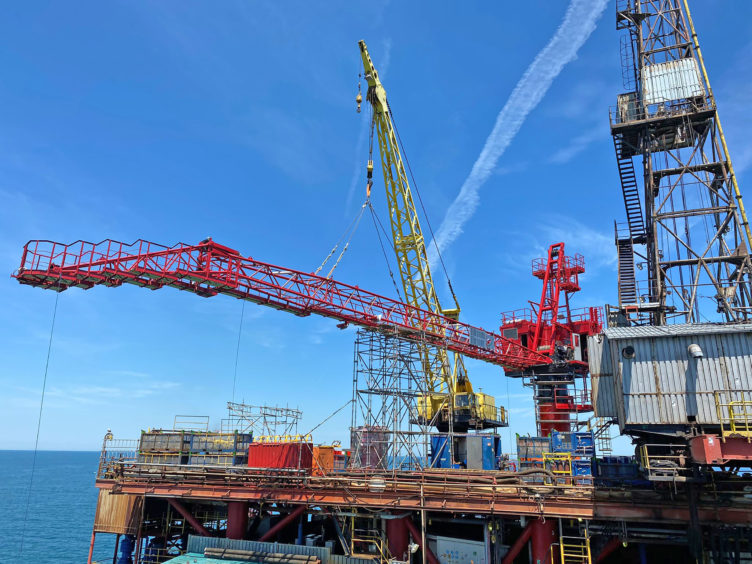
Working on an offshore Engineering, Procurement, Construction and Commissioning (EPCC) project for three years without a lost time incident (LTI) is an achievement.
June 2021 marks just such a milestone for engineering and construction company Innovo in the shallow-water Istria block in the Romanian sector of the Black Sea.
As the contract to install three new cranes and decommission three existing cranes on the PFS1, PFS3 and PFS6 platforms for oil and gas operator OMV Petrom draws to a close, there have been no LTIs since it began in 2018.
The EPCC contract called on Innovo’s project management and detailed engineering capability to create work packages for the installation and commissioning of the new cranes, as well as the destruction of the existing cranes, pedestals and boom rests using the newly installed cranes.
Innovo was selected for the EPCC contract on the basis of its technical capabilities as well as its track record of safety and reliability – a track record that the company’s corporate business development director, Garry Millard, says is the result of consistently prioritising safety throughout the project lifecycle: “The contract involved onshore studies and offshore work, equating to over 65,000 manhours. Innovo and our partners Petroconst SA combined our engineering and construction capabilities to execute the project without any LTIs to date, a significant achievement given the number of companies involved in completing the work and the additional time pressures caused by the COVID-19 pandemic.”
The emergence of the pandemic meant that a new schedule had to be devised following a six-month suspension of offshore activity which required five days of quarantine for personnel before each shift offshore, and the extension of shifts by one week to minimise the impact.
Relying on years of cumulative offshore experience, the team delivered a plan that optimised the number of personnel offshore while observing restrictions on travel around the world.
The crane installation operations involved engineering all-new structures including the pedestal design for the complex platform environments, the development of method installation engineering and lifting design, Health, Safety and Environment (HS&E) documentation and project management.
The decommissioning of each crane covered analysis of every component to be removed, the supply of lifting tools and the rigging arrangement.
Innovo supplied a platform supervisor for work on-site and all of the necessary documentation including storyboards, step-by-step procedures, lifting arrangements and a workpack complete with risk assessments and Simultaneous Operations (SIMOPS) / As Low As Reasonably Practicable (ALARP) analysis.
Much is spoken about collaboration but here it was in action for real, with Innovo’s and Petroconst SA’s teams collaborating to meticulously plan and co-ordinate engineering tasks and construction activities to optimise the safety of personnel at all times on what was a challenging decom project even before the fresh challenges of the pandemic were added.
As work nears conclusion, two new cranes have been installed and two removed. The final crane will be commissioned in June 2021 and the last will be decommissioned at the beginning of July 2021. Crucially, neither the installation of the new cranes nor the demolition of the old cranes has interrupted the platforms’ production activities.
Adrian Rosculet, technical director of Petroconst SA, considers Innovo’s approach as being key to the LTI-free record: “We have gained priceless experience working with the Innovo team and I personally thank them for their outstanding performance and working attitude, which enabled a smooth and successful fulfilment of the project.”
Garry Millard is Corporate New Business Development Director at Innovo Engineering & Construction
